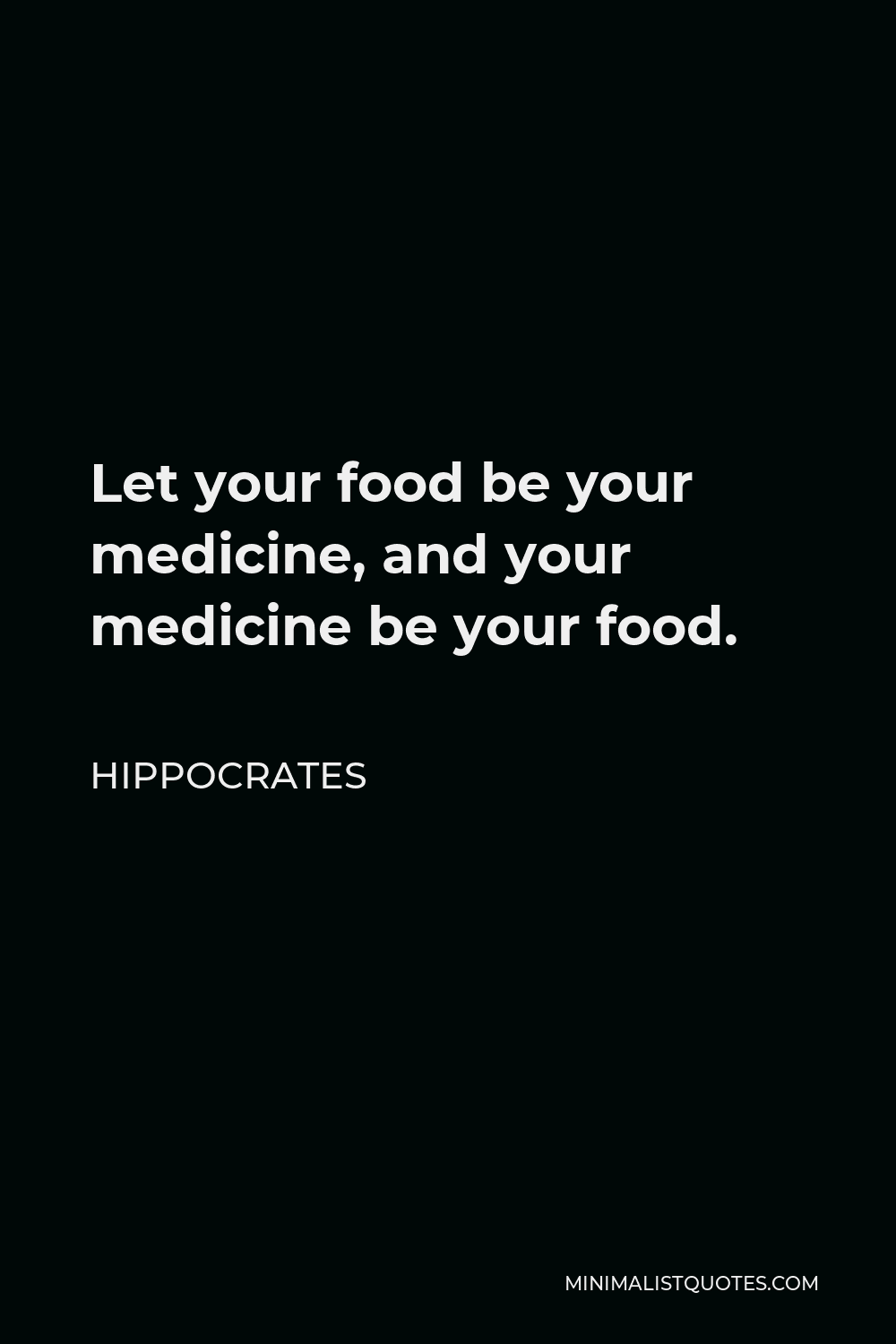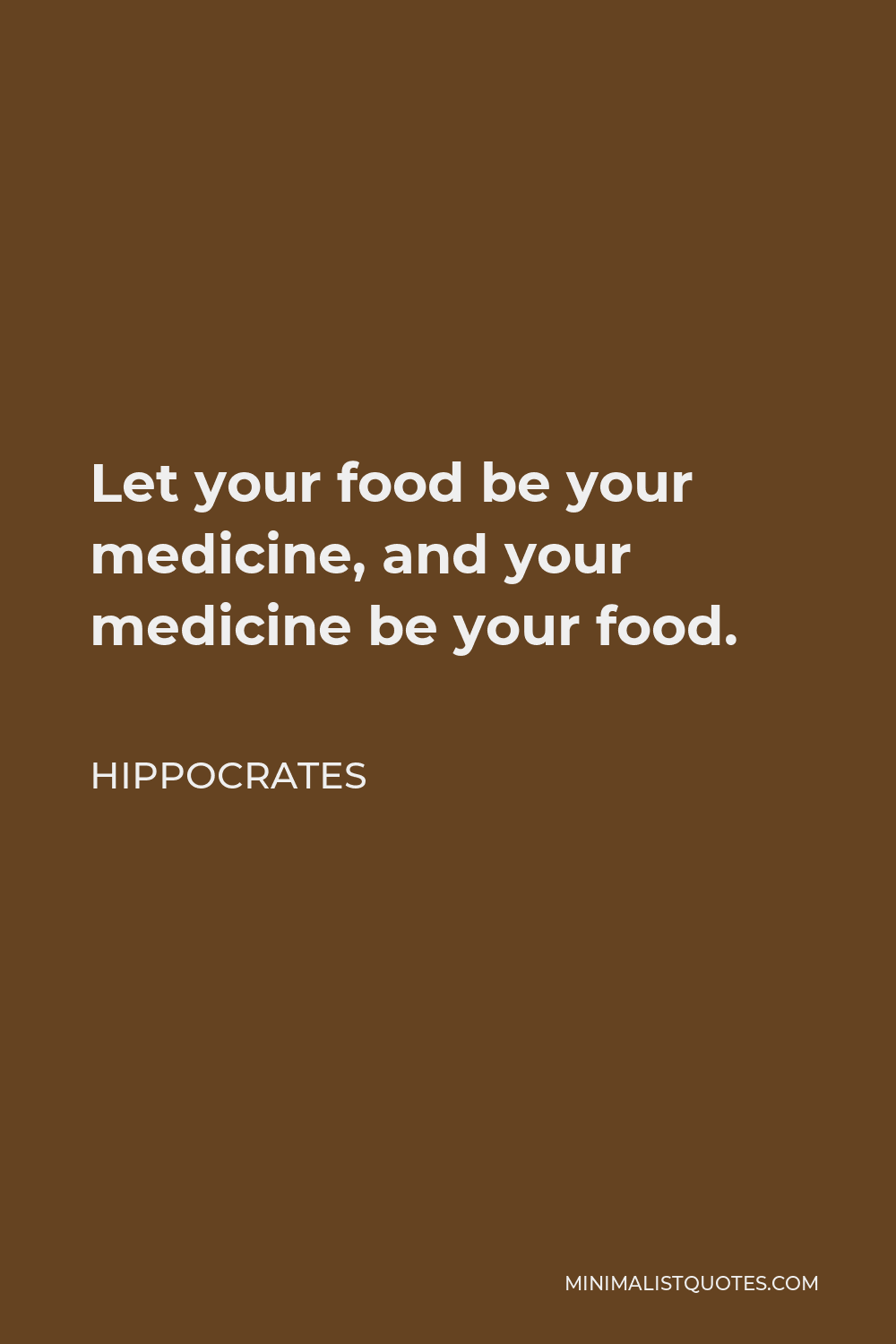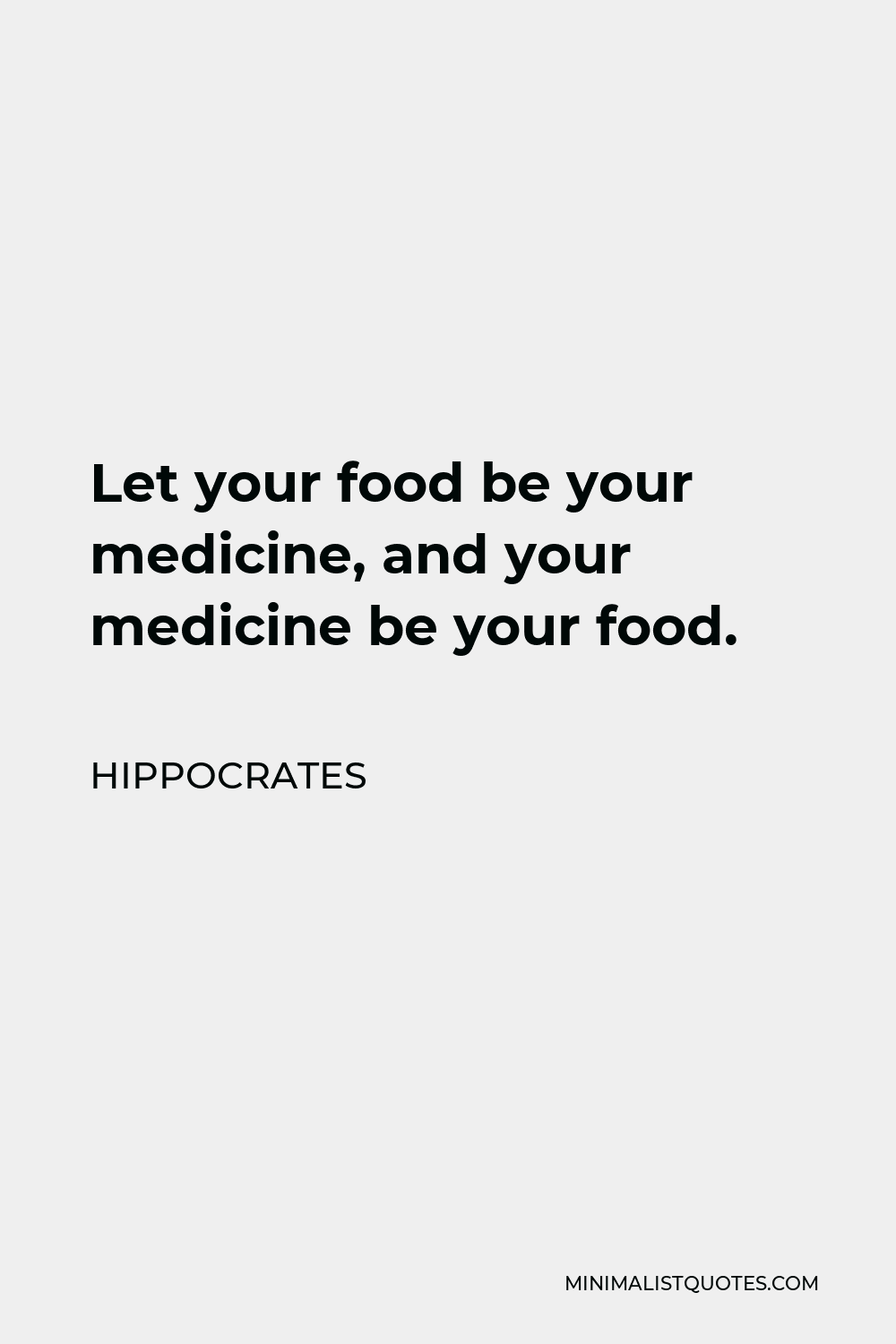Fat people who want to reduce should take their exercise on an empty stomach and sit down to their food out of breath…. Thin people who want to get fat should do exactly the opposite and never take exercise on an empty stomach.
HIPPOCRATESLet your food be your medicine, and your medicine be your food.
More Hippocrates Quotes
-





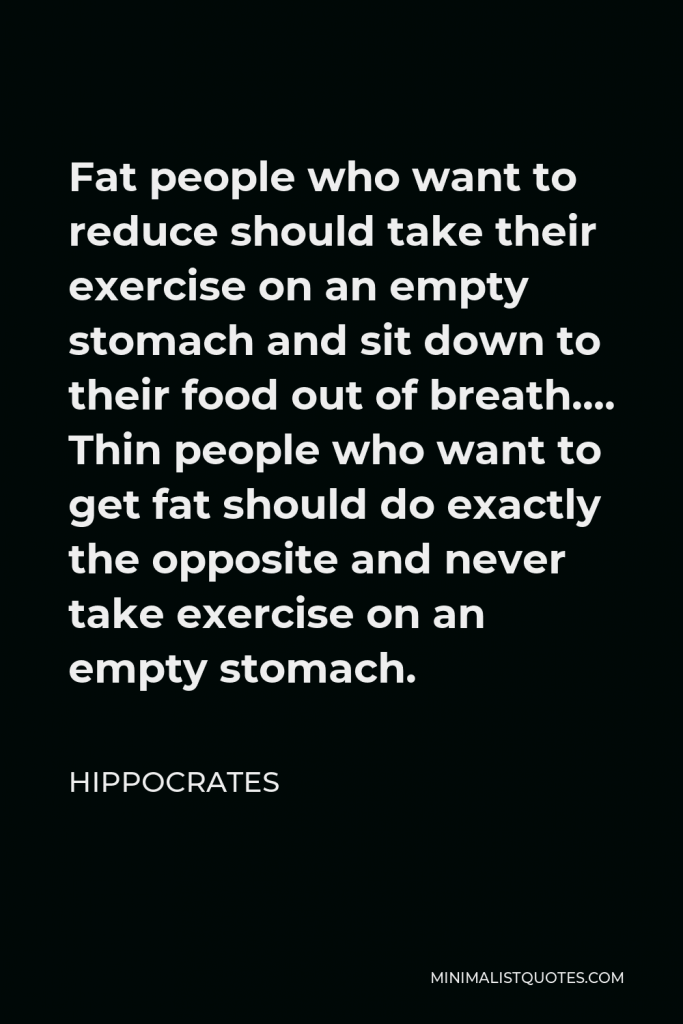

-





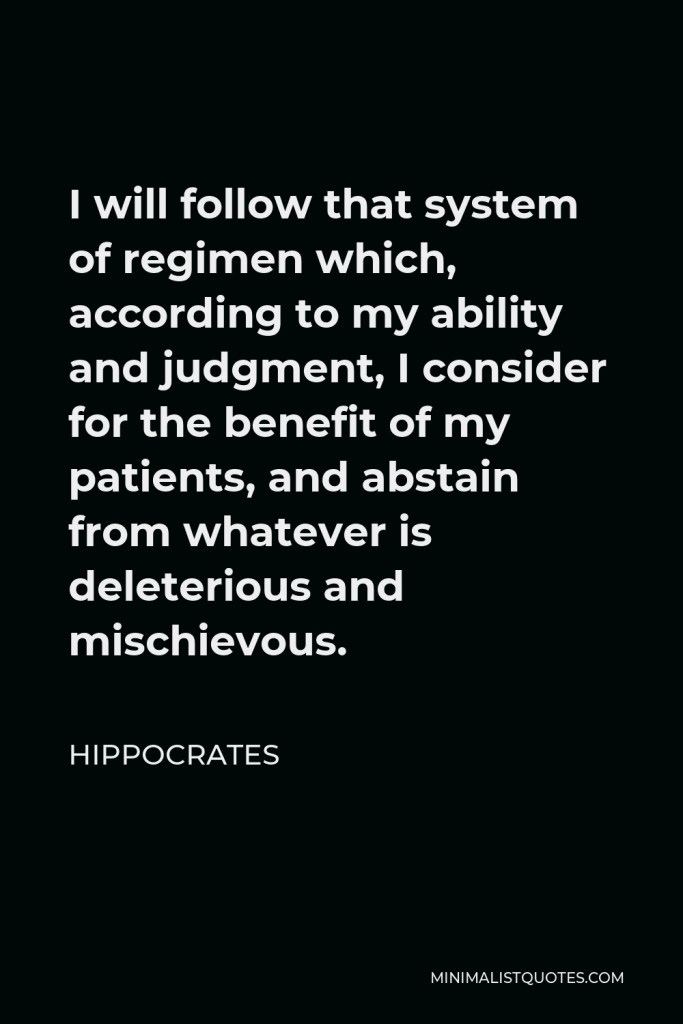

I will follow that system of regimen which, according to my ability and judgment, I consider for the benefit of my patients, and abstain from whatever is deleterious and mischievous.
HIPPOCRATES -





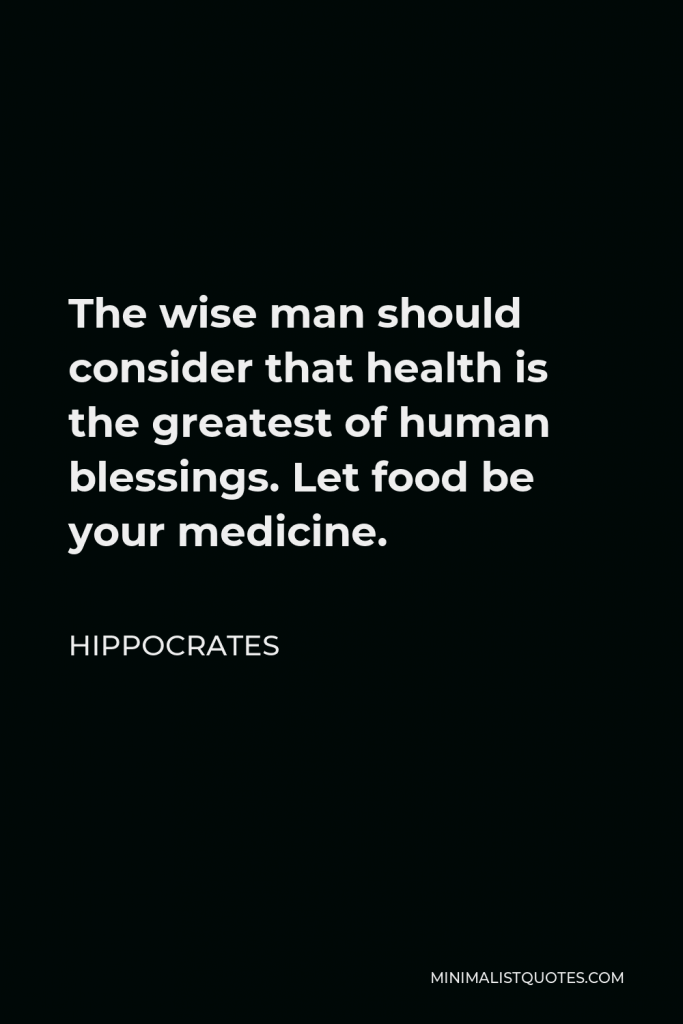

The wise man should consider that health is the greatest of human blessings. Let food be your medicine.
HIPPOCRATES -





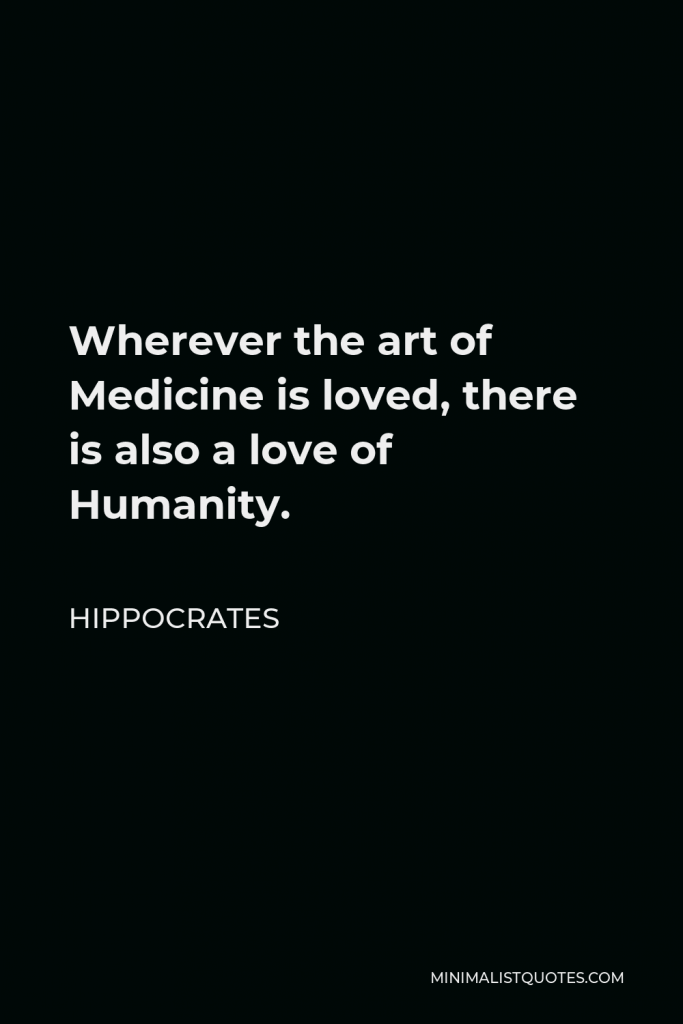

Wherever the art of Medicine is loved, there is also a love of Humanity.
HIPPOCRATES -





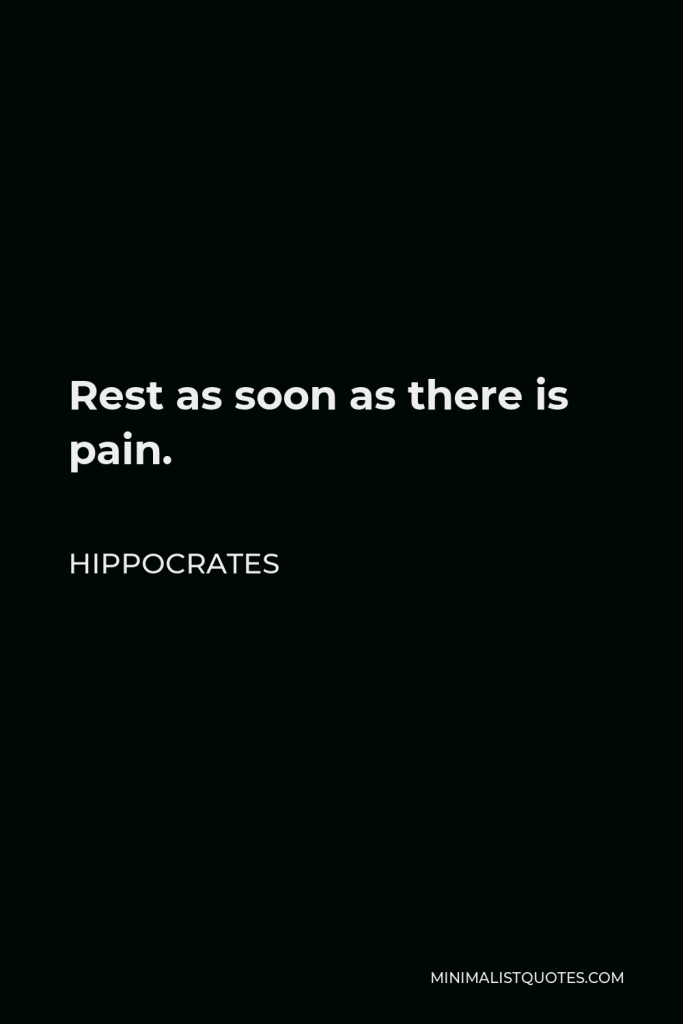

Rest as soon as there is pain.
HIPPOCRATES -





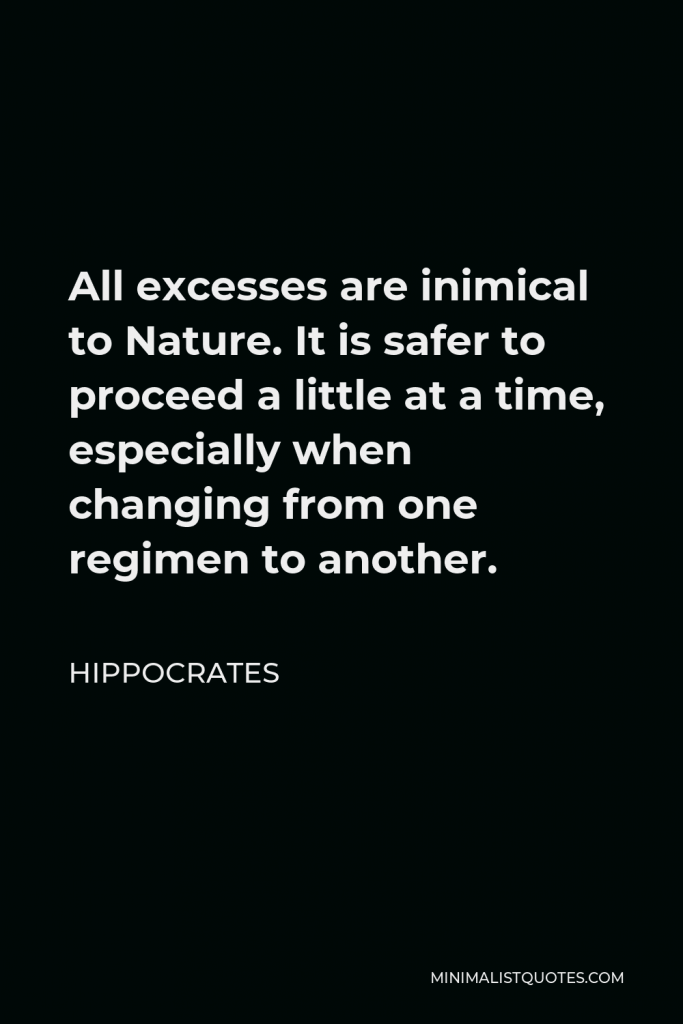

All excesses are inimical to Nature. It is safer to proceed a little at a time, especially when changing from one regimen to another.
HIPPOCRATES -





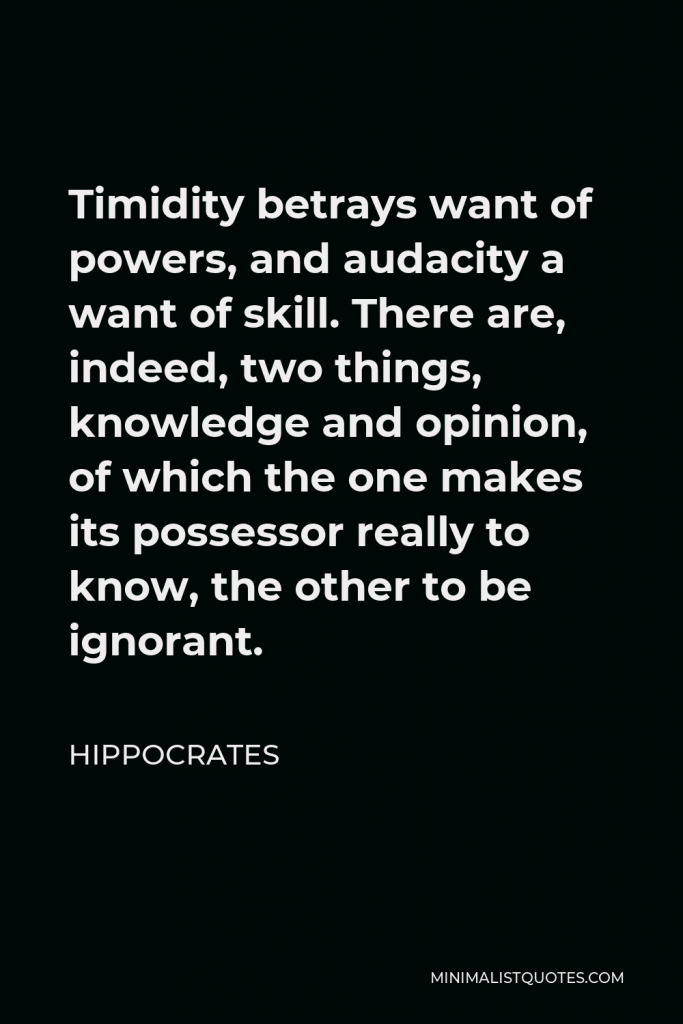

Timidity betrays want of powers, and audacity a want of skill. There are, indeed, two things, knowledge and opinion, of which the one makes its possessor really to know, the other to be ignorant.
HIPPOCRATES -





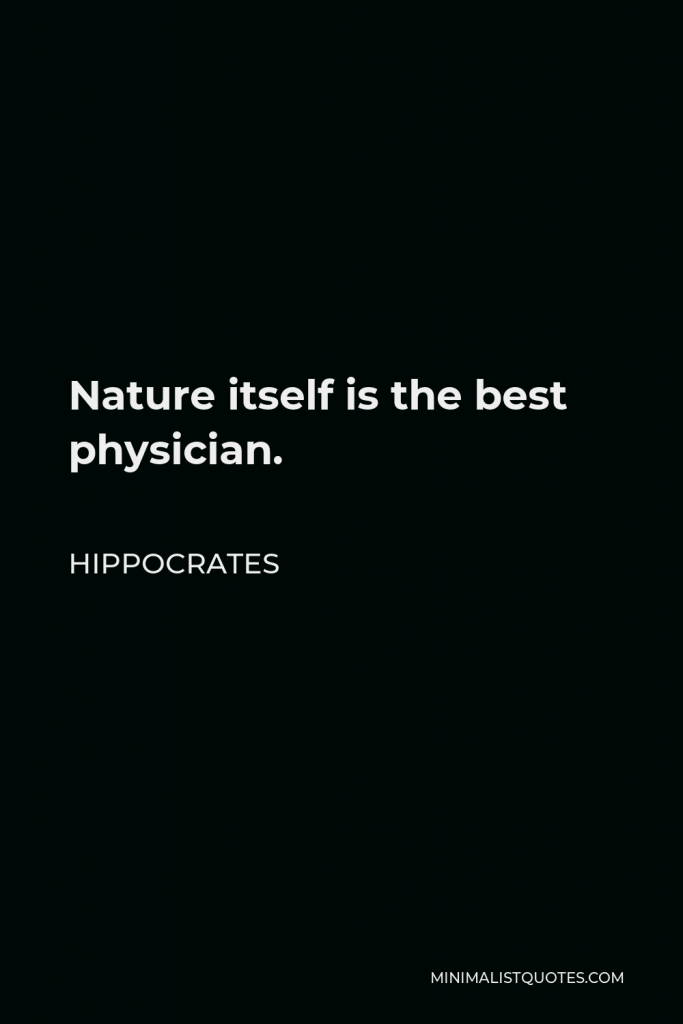

Nature itself is the best physician.
HIPPOCRATES -





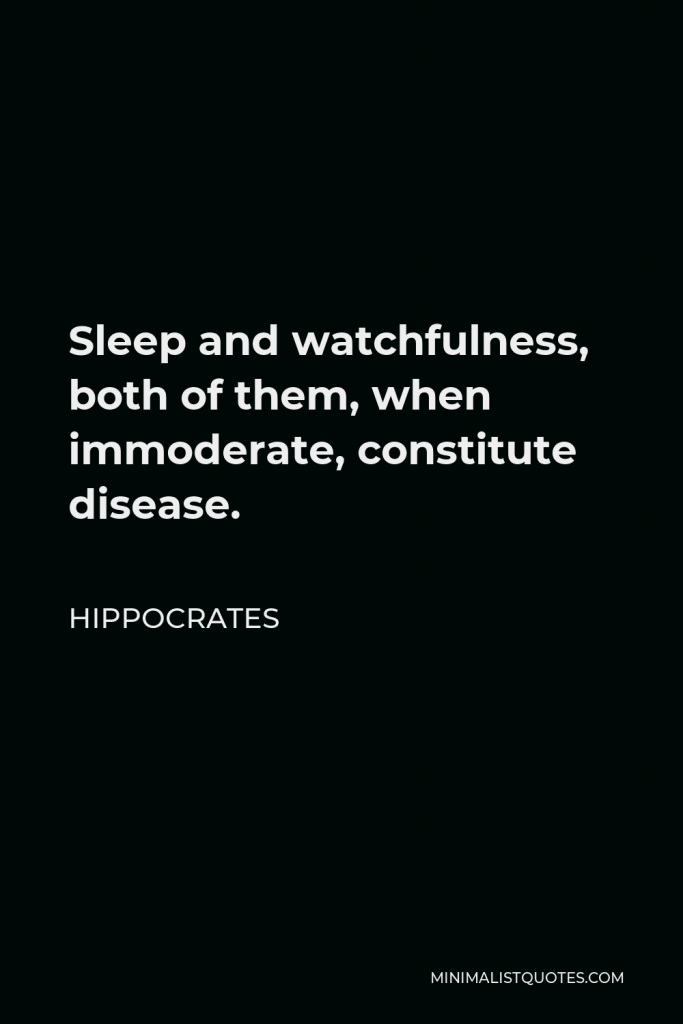

Sleep and watchfulness, both of them, when immoderate, constitute disease.
HIPPOCRATES -





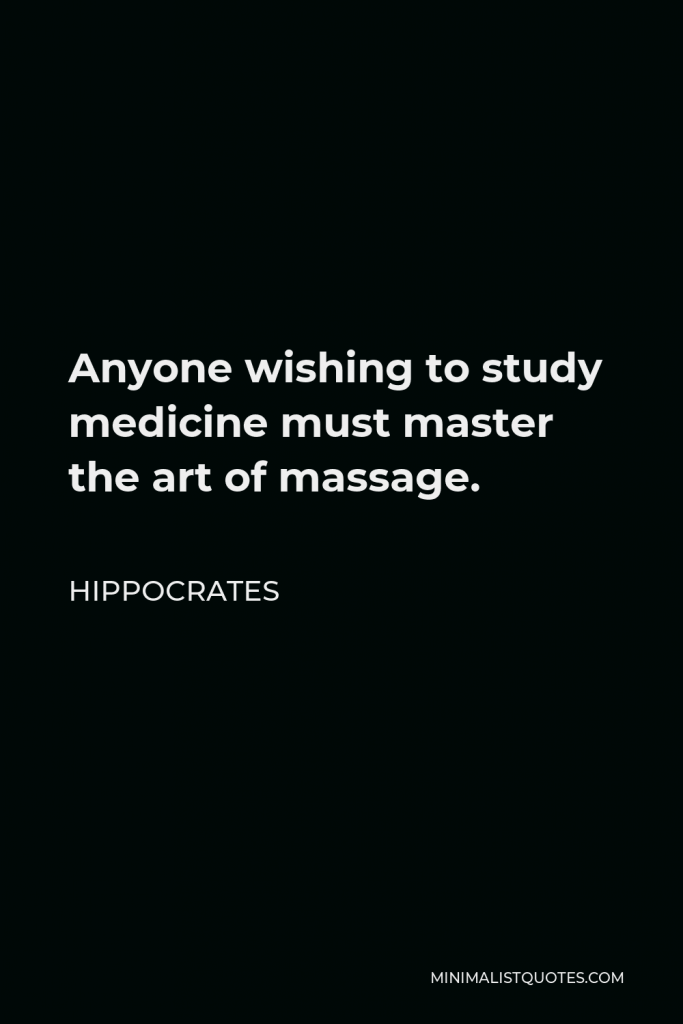

Anyone wishing to study medicine must master the art of massage.
HIPPOCRATES -





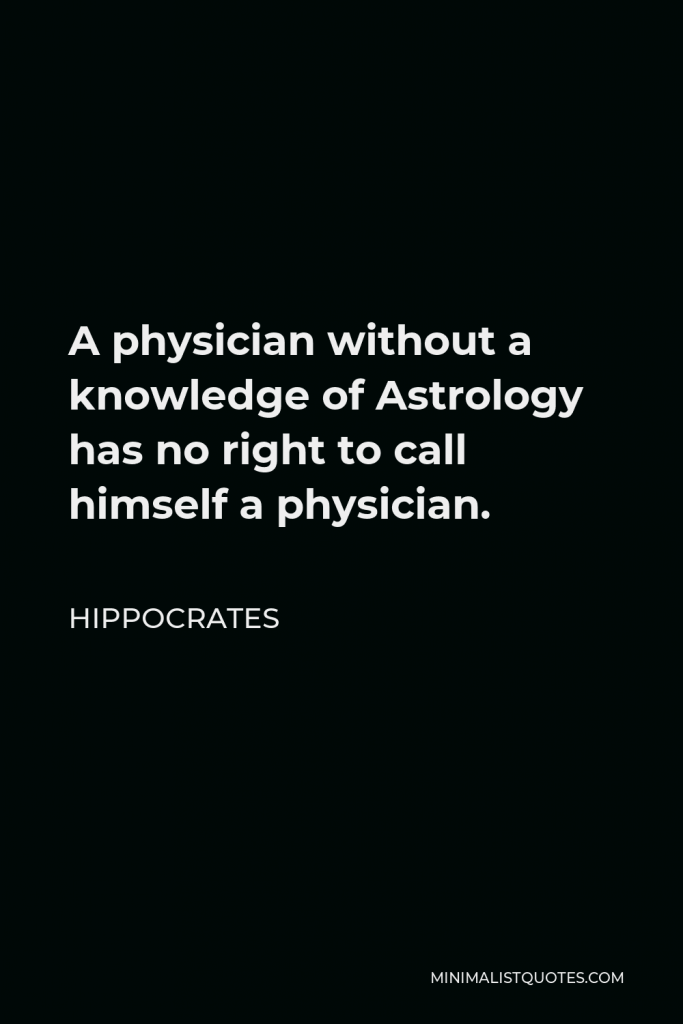

A physician without a knowledge of Astrology has no right to call himself a physician.
HIPPOCRATES -





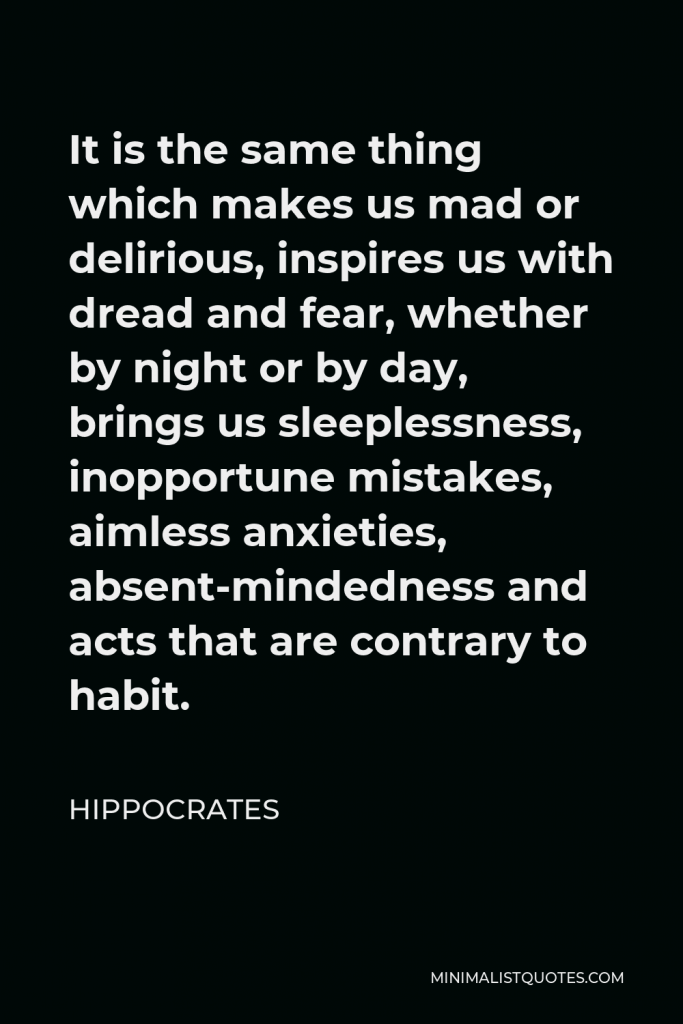

It is the same thing which makes us mad or delirious, inspires us with dread and fear, whether by night or by day, brings us sleeplessness, inopportune mistakes, aimless anxieties, absent-mindedness and acts that are contrary to habit.
HIPPOCRATES -





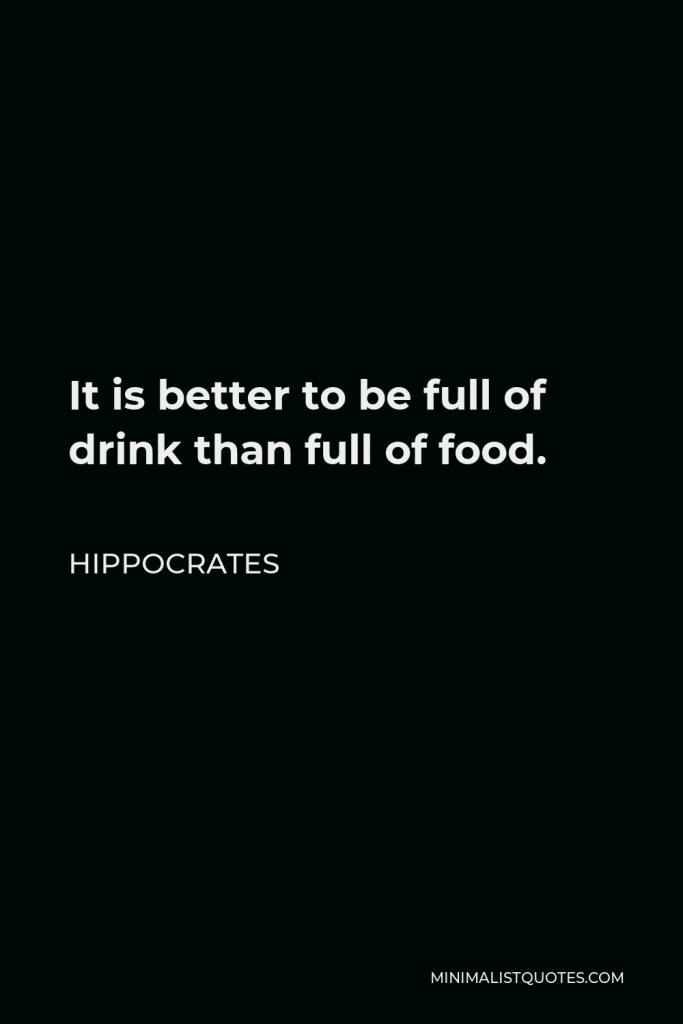

It is better to be full of drink than full of food.
HIPPOCRATES -





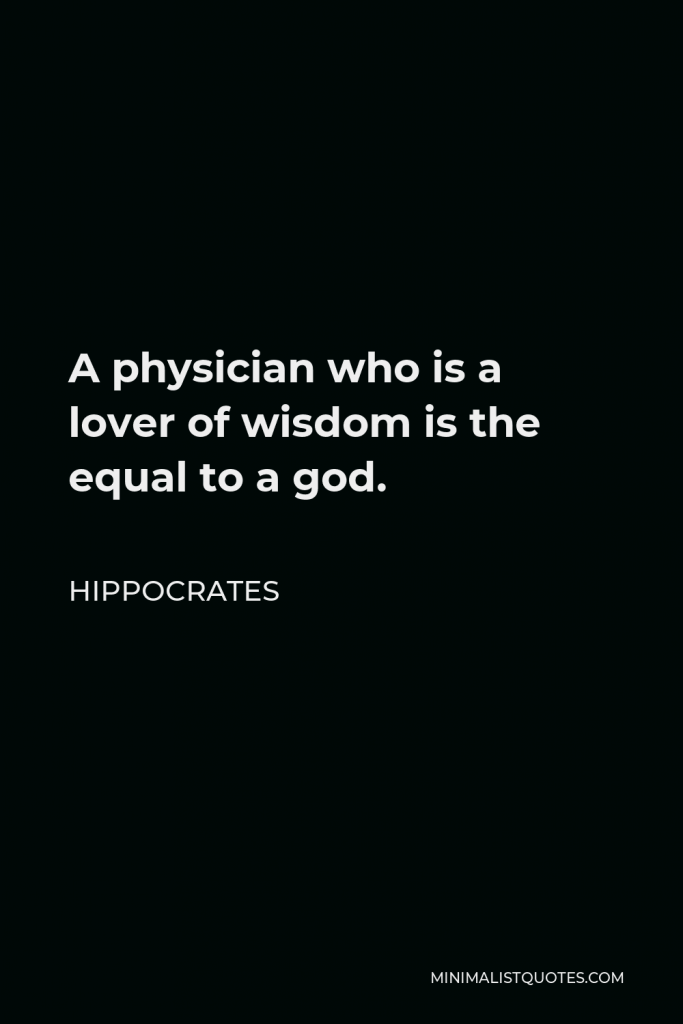

A physician who is a lover of wisdom is the equal to a god.
HIPPOCRATES -





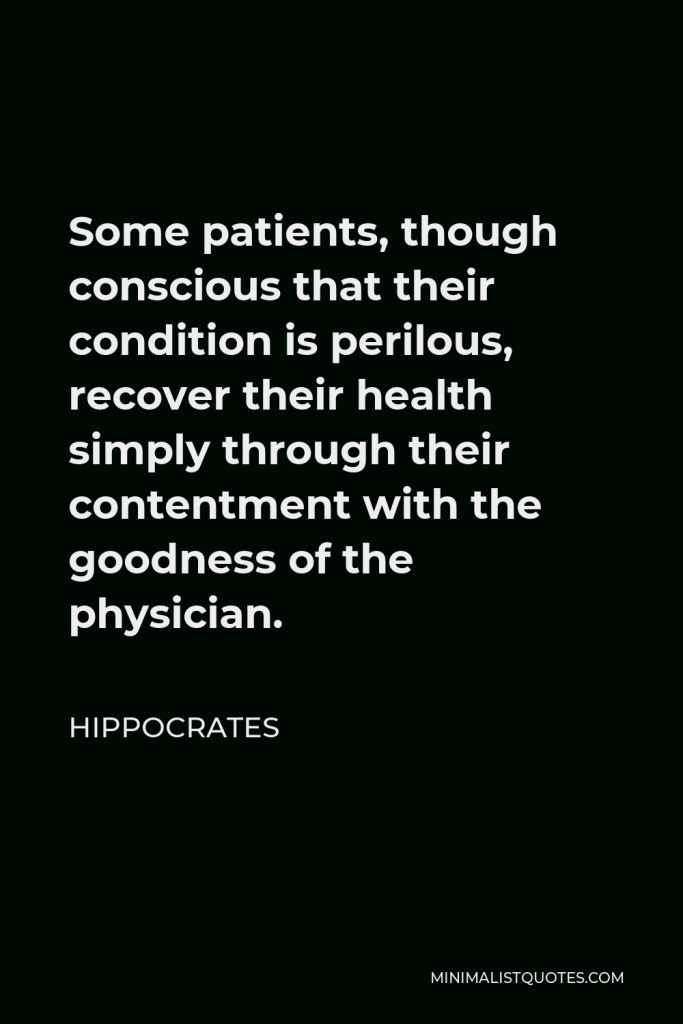

Some patients, though conscious that their condition is perilous, recover their health simply through their contentment with the goodness of the physician.
HIPPOCRATES -





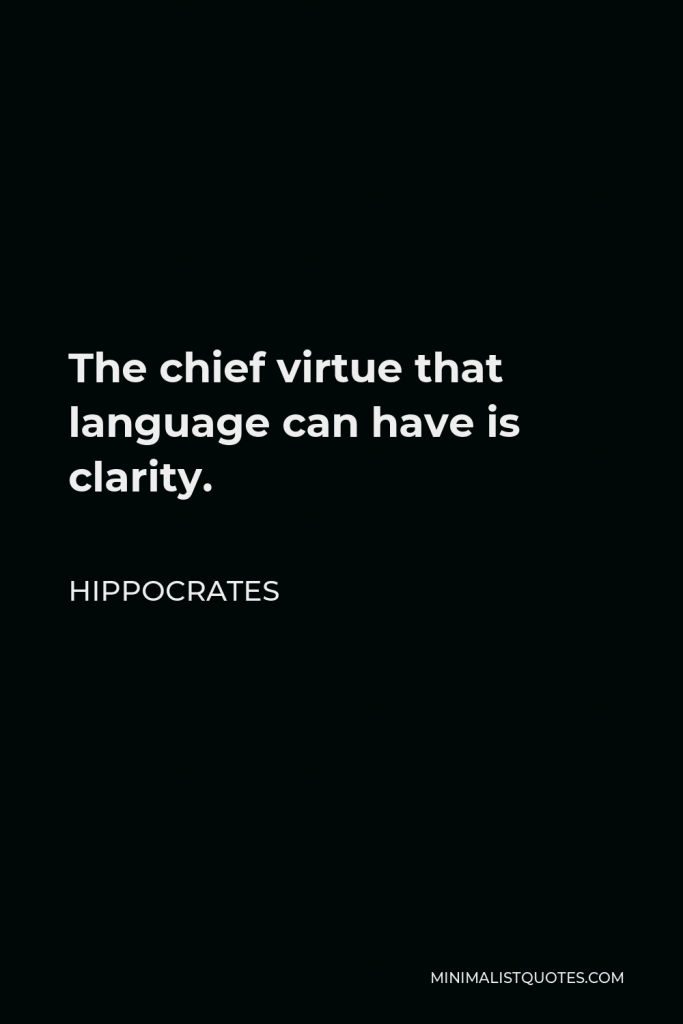

The chief virtue that language can have is clarity.
HIPPOCRATES
